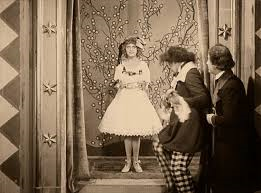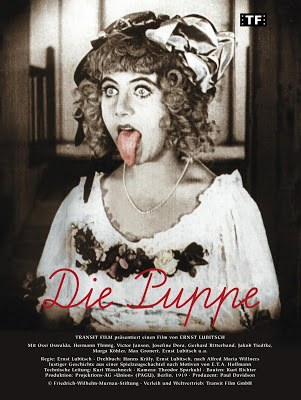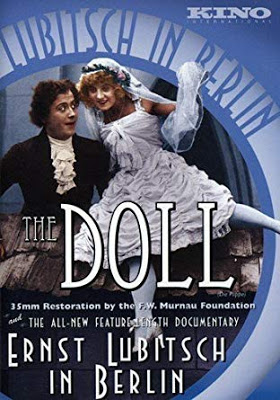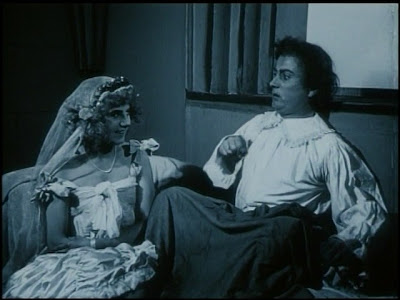When asked later in life which of his German
films was his favorite, Lubitsch named this one over his other comedies
and his large scale epics. It is a lovely confection of a film smothered
in frosting and sprinkled with chocolate dots. It is a modern fairy-tale
but not a morality tale - just pure silliness and good humor. Which in 1919
Germany was a bit unusual as most of the films being released were serious
looks at the dark chaotic world around them either in social dramas or horror
or war or politically charged stories.Lubitsch never really made an explicit
political film with the exception of To Be or Not To Be in 1942 which satirized
the Nazis but was also perhaps his most perfect film and funny as hell and
his wonderful satirical but gentle critique on Communism in Ninotchka. In
his personal life he was political once he went to America, but he generally
left it out of his films in an obvious manner. Lubitsch wanted to entertain
and at least in the comedies I have seen so far of his German work they
are still amusing after 100 years. 100 years and they still make me laugh.
And not really a pratfall to be seen.

Everything about this is complete fantasy - the unreal sets, horses with
men inside, the paper Mache moon, kitchen implements painted on the wall,
a fake Bavarian town and the many dolls. It is surreal and charming. The
town's Baron feels he is getting closer to death and so insists that his
nephew Lancelot (Herman Thimig) get married right away to carry on the family
line and announces in the town square for all eligible single women to come
to his castle for the nephew to choose one. But Lancelot is terrified of
women and has no desire to be a married man. So he runs away with forty women
in hot pursuit and he hides in a monastery where the Brothers are busy eating
all the time.

When the Baron tells him that he will give Lancelot a huge dowry if he
gets married the Brothers tell him that there is a dollmaker (Victor Jansen)
in town who makes full size lifelike dolls who can perform certain functions
and maybe he can get one to marry and fool his uncle. After showing Lancelot
a group of dolls who want to seemingly give him a lap dance, in a series
of mistakes Lancelot ends up with a doll who is in fact really the daughter
of the dollmaker pretending to be a mechanical doll.
She is adorable and played by Lubitsch's favorite comedienne Ossi Oswalda.
She keeps pretending to be a doll as Lancelot takes her to his uncle's,
a marriage and a dance. Later she does a jig that is priceless to behold.
Pure joy. Lubitsch sets this fantasy out with tongue firmly in cheek poking
fun at masculinity, aristocracy, the church and romance. A delightful film.




